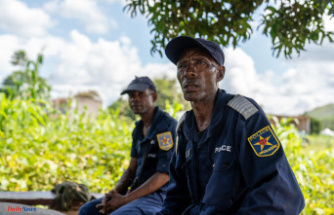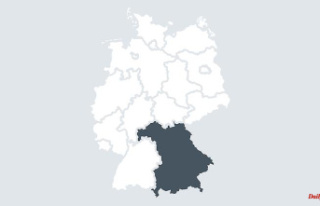Schwerin/Brussels (dpa/mv) - Mecklenburg-Western Pomerania wants to support a possible application of Stettin as European Capital of Culture and also want to throw Western Pomerania into the equation. "We find the idea of the metropolitan region very charming overall," said Head of State Patrick Dahlemann (SPD) on Thursday at the end of two-day political talks at the EU Commission headquarters in Brussels. An application as a cultural capital should therefore be discussed at the next meeting with representatives of the city of Szczecin and the West Pomeranian Voivodeship. "The more people who want to take part in such an idea, the better," said the SPD politician.
Wroclaw was the last Polish city to be European Capital of Culture in 2016. Chemnitz in Saxony will be the host in 2025. That's why Germany initially has little chance of a separate application, admitted Dahlemann. For Poland, however, the chances are good to be awarded the contract for 2029 or 2030. A joint initiative also draws attention to the topic of border areas. Dahlemann is convinced that cross-border cooperation at the regional level is going well. However, Prime Minister Manuela Schwesig (SPD) was denied talks with high-ranking politicians during her most recent visit to Szczecin in mid-June.
As a result of the trip to Brussels, Dahlemann also announced talks with the municipal level in Mecklenburg-Western Pomerania on future election dates. So far, local and European elections have been held in one day in the north-east. In the course of the reform of the European electoral law, however, the EU is aiming for May 9th as a fixed election date. However, this is problematic because in Germany elections are generally held on Sundays. It is conceivable, however, to declare the European election day a public holiday or to draw attention to the possibility of postal voting on the day. "The solution is not yet on the table. You have to be sensitive about it," said Dahlemann. The goal remains a high turnout in both local and European elections. The next election will take place in May 2024.












